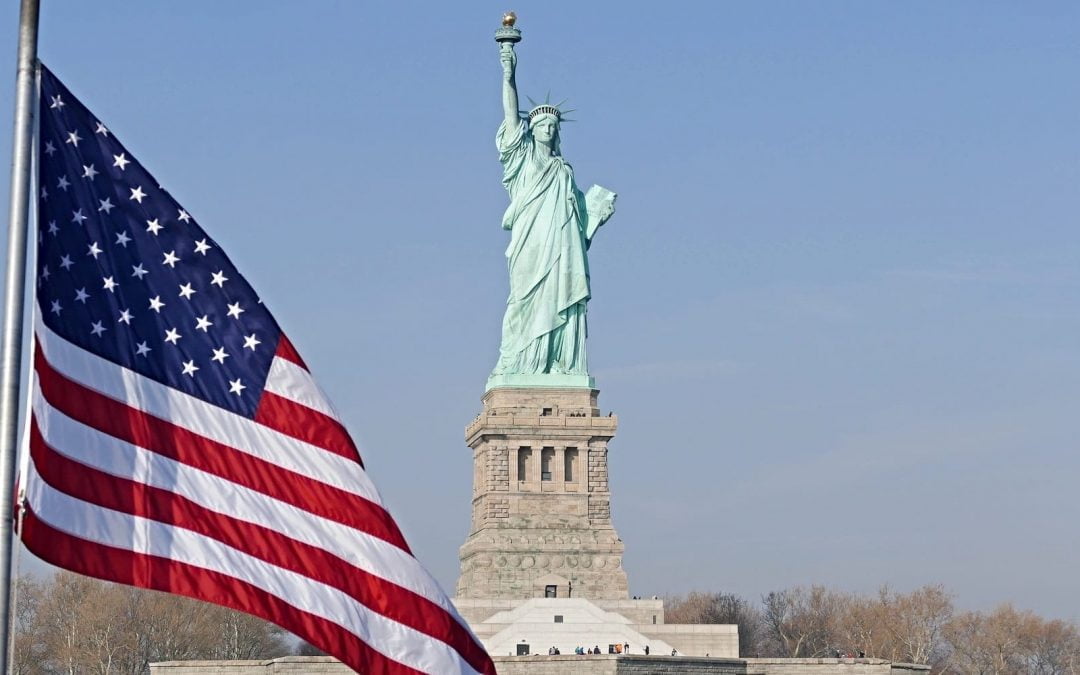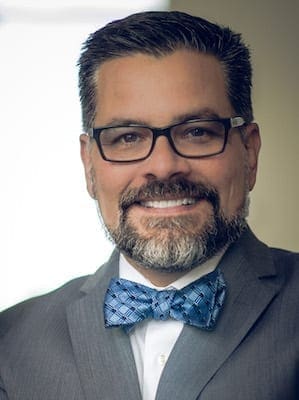There has been much debate about religious liberty lately.
On one side, evangelical Christians argue that their faith is under attack from those attempting to reduce their influence in culture.
On the other side, proponents of church-state separation contend that some Christians breech the wall of separation as they seek favored status in culture.
More pointedly, an even greater conflict has emerged since the U.S. Supreme Court ruled in favor of a Colorado baker’s right to turn away a gay couple when they requested a wedding cake.
In a 7-2 decision (Masterpiece Cakeshop, Ltd. v. Colorado Civil Rights Commission), the court ruled that the commission had shown a “hostility” toward the baker’s religion, violating the “State’s obligation of religious neutrality.”
Where this becomes confusing is that the court did not rule on the intersectionality between anti-discrimination laws and First Amendment rights.
Therefore, the question still looms large on what precisely the court’s ruling means when it comes to a person’s right to discriminate based upon closely held religious beliefs.
For example, would a white supremacist barber be allowed to turn away African Americans because the barber believes in a vile interpretation of the Bible?
Could a doctor refuse to treat an unwed teenage mom because the doctor thinks the Bible teaches against premarital sex?
I know these scenarios sound far-fetched, but the underlying principles at stake are substantial. How far can a person with a personal religious belief discriminate in society?
Now, I am no lawyer, so I will not attempt to address this legally. Our friends at the Baptist Joint Committee for Religious Liberty are an excellent and indispensable resource on such matters.
However, I will try to address this question from a biblical, historical and cultural perspective.
Religious liberty was born from a deep desire to practice liberty of conscience. Beginning in the 14th and 15th centuries with John Wycliffe and Jan Hus, individual conscience was set against both ecclesiastical and civil laws.
From Oxford, Wycliffe believed the Bible should be returned to the body of Christ, apart from strict clerical dominion, and should be read in the common tongue, which was English.
He also espoused his thoughts on divine authority over English lords, who did not appreciate his meddling.
From Prague, Jan Hus held similar beliefs to Wycliffe. When it came to communion, Hus passed out both the bread and wine to his parishioners.
Up to this point, parishioners only received the bread. Also, Hus held a strong belief that clergy, even the pope, should be held accountable.
As one can imagine, these types of beliefs did not go well with those in power.
Wycliffe died before he could go to trial, but he was convicted as a heretic posthumously.
His bones were dug up, burned and thrown into the River Swift. Hus was convicted of heresy during the Council of Constance, and he was burned at the stake on July 6, 1415.
Out of those ashes, freedom of conscience would rise during the 16th century Reformation, as a band of radical reformers emerged known as the Anabaptists.
Even though Reformers such as Martin Luther, Ulrich Zwingli and John Calvin maintained their closely intertwined relationship with their civil governments, the Anabaptists were the first to challenge the idea that faith could be manipulated and coerced by the government.
Anabaptists argued for believer’s baptism, which meant a person was baptized after they made a profession of faith, while the state churches practiced infant baptism.
Because this was contrary to the laws of the church and civil authorities, Anabaptists were prosecuted, arrested and executed.
In England, John Smyth and Thomas Helwys built upon the work of the Anabaptists, challenging the King of England and his church’s belief in infant baptism. Like the Anabaptists, Smyth and Helwys believed in believer’s baptism.
In his masterful work, “A Short Declaration of the Mystery of Iniquity,” Helwys called for complete freedom of conscience on matters of religion for all people: be they Christian, Jew, Muslim or any other.
Baptist historian Walter Shurden said that Helwys went further in saying that the Church of England was exercising a “cruel spiritual bondage” when they insisted they were the sole conscience of the people.
As the American colonies began to take shape in the 17th century, religious liberty would find one of its greatest advocates in Roger Williams.
He arrived in what is now Massachusetts ready for a fresh start, but what he discovered is that those who fled persecution in England tended to coerce and persecute once they gained power.
Williams concluded, “Enforced uniformity confounds civil and religious liberty and denies the principles of Christianity and civility. No man shall be required to worship or maintain a worship against his will.”
He went even future in arguing that a hedge of protection should be placed around the garden of the church to protect it from the wilderness of the world.
A century and a Revolutionary War later, the third U.S. president, Thomas Jefferson, picked up on Williams’ metaphor.
With the establishment and free exercise clauses already established in the First Amendment to the U.S. Constitution, the sitting president wrote to a group of Baptists from Danbury, Connecticut, assuring them their religious liberty would be protected.
“Believing with you that religion is a matter which lies solely between Man & his God, that he owes account to none other for his faith or his worship, that the legitimate powers of government reach actions only, & not opinions, I contemplate with sovereign reverence that act of the whole American people which declared that their legislature should ‘make no law respecting an establishment of religion, or prohibiting the free exercise thereof,’ thus building a wall of separation between Church & State,” Jefferson wrote.
“Adhering to this expression of the supreme will of the nation in behalf of the rights of conscience, I shall see with sincere satisfaction the progress of those sentiments which tend to restore to man all his natural rights, convinced he has no natural right in opposition to his social duties.”
For religious liberty to thrive, a wall of separation must be placed between church and state.
Jesus argued for this principle when asked about taxation. He responded in Matthew 22, “Then render to Caesar the things that are Caesar’s, and to God the things that are God’s.”
Jesus knew that the only way to keep the garden of God’s kingdom free from weeds would be to protect it with a barrier.
However, Jesus’ teaching did not mean his disciples should isolate themselves from the world or discriminate against other people.
The Apostle Paul argued this very point in Galatians 5, “We were set free by Christ to live freely for Christ.”
The redeeming act of Christ at Golgotha loosened the chains for Paul, no longer trying him to a rigid and restrictive of faith.
He believed strongly in conscience, but in a conscience that placed the ideals and acts of love over all else.
In other words, while our conscience should always guide us on matters of faith, we should do so with open arms to a world needing the love and affirmation of Jesus.
Christians – or anyone for that matter – should never be asked to jeopardize their conscience, but they should also not be allowed to discriminate in the public square based upon their faith.
All people of faith have the right to worship and practice their faith as their conscience dictates, even to the point of discriminating when it comes to religions membership of their institution.
However, when people of faith are allowed to discriminate in the public square based on someone’s race, religion or personhood, then we are headed down a hazardous road.
During this week that we gather to celebrate our freedoms as U.S. citizens, let us keep in mind the importance of religious liberty for all people and remember that separating church and state helps protect that liberty.
As we gather in churches over the weekend, let us be reminded that Jesus freed us from the bondage of restrictive religion and encouraged us to embrace the world with his unrestrained love.


